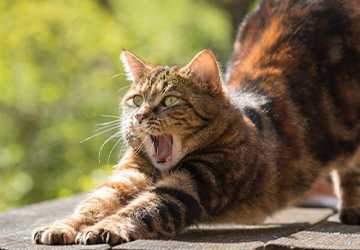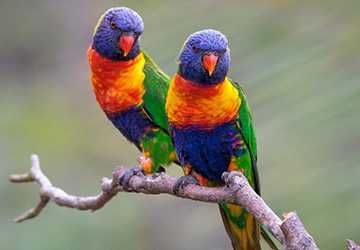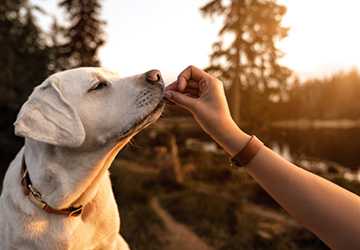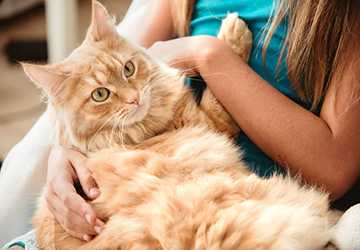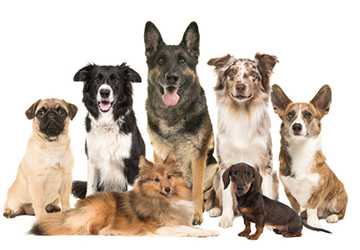Top 10 Exotic Mammals to Keep as Unique Pets
In the realm of pet ownership,a world beyond cats and dogs beckons the adventurous and the unconventional.Exotic mammals offer a unique pet-owning experience filled with wonder and awe. With their distinctive appearances and fascinating behaviors,these extraordinary creatures can make for captivating companions.While keeping exotic mammals as pets may not be for everyone due to their unique care requirements,it's an endeavor worth exploring for those with the passion and resources to provide the best possible environment for these remarkable animals.In this article,we'll dive into exotic pet ownership and discover the top 10 exotic mammals that can be kept as unique pets.

Fennec Fox (Vulpes zerda)
Standing out with their oversized ears and adorable faces,Fennec foxes have captured the hearts of many exotic pet enthusiasts.These diminutive canids are native to North Africa and are known for their playful and social nature.While they may not be as affectionate as domestic dogs,Fennec foxes can form strong bonds with their human caregivers.When considering a Fennec fox as a pet, viewing their unique care requirements is essential. They need a spacious, secure enclosure with room to dig and burrow. Additionally, their diet should consist of high-quality commercial fox food and insects to meet their specific nutritional needs. Fennec foxes thrive in warm climates and should have a comfortable living space to stay happy and healthy.
Sugar Glider (Petaurus breviceps)
Sugar gliders, native to Australia, Indonesia, and New Guinea, are charming marsupials known for their gliding abilities and endearing appearance. These tiny creatures have a unique way of bonding with their owners, often forming solid connections and enjoying cuddling sessions. Sugar gliders can even be carried in a pouch, replicating their natural habitat.To keep sugar gliders as pets, it's essential to provide a well-ventilated cage with ample opportunities for climbing and gliding. Their diet consists of a balanced mix of fruits, vegetables, and a protein source. Additionally, sugar gliders are nocturnal, so they may not be the best choice for those who prefer daily pets. Patience and commitment are crucial when caring for these delightful marsupials.
Capybara (Hydrochoerus hydrochaeris)
If you dream of a pet that resembles a giant guinea pig, the capybara might be your ideal choice. Capybaras are the world's most giant rodents native to South America. Their friendly and sociable nature makes them endearing companions. Still, they require a lot of space to roam, a secure enclosure, and a water feature for swimming, as these semi-aquatic creatures love to take a dip.Capybaras are herbivores, primarily consuming a diet of grass and hay. Their need for social interaction makes them better suited to families or individuals who can spend plenty of quality time with them. Capybaras are known for forming strong bonds with their human caregivers, making them one of the more affectionate exotic mammals on this list.
Wallaby (Macropodidae family)
Wallabies are closely related to kangaroos, and they're native to Australia. Given the right circumstances, these small marsupials make for fascinating and unique pets. Wallabies are engaging and curious, which can be pretty entertaining to observe.When considering a wallaby as a pet, providing a large, secure outdoor enclosure is crucial, as they require space to hop and explore. A proper diet for wallabies includes a mix of high-fiber pellets and fresh fruits and vegetables. It's essential to research the specific species you're interested in, as there are several types of wallabies, each with unique care requirements.
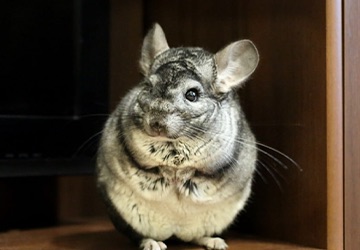
Chinchilla (Chinchilla lanigera)
Known for their incredibly soft and dense fur, chinchillas are adorable, small rodents native to the Andes mountains in South America. These little creatures are highly active, agile, and known for their playful behavior. Chinchillas are known for their ability to jump and climb, so providing a multi-level enclosure with various toys and activities is crucial for their well-being.Regarding their diet, chinchillas require a high-fiber, low-fat diet consisting of hay, pellets, and occasional treats. Also, their fur is delicate and sensitive, so proper dust baths are essential to maintain cleanliness. Chinchillas are gentle and friendly animals, making them suitable for pet owners with the time and dedication to provide them with the care they need.
Lemur (Lemuroidea infraorder)
If you've ever dreamed of having a pet that resembles the mischievous creatures from the movie "Madagascar," you might want to consider a lemur. These primates are native to Madagascar and nearby islands and are known for their distinctive appearance and lively personalities.Lemurs can make captivating pets but come with unique challenges. They require a lot of space, a safe and stimulating environment, and the companionship of other lemurs. Lemurs have specific dietary needs, including various fruits, vegetables, and protein sources. While these exotic pets can form strong bonds with their caregivers, they need extensive social interaction and a stimulating environment to thrive.
Kinkajou (Potos flavus)
Kinkajous, also known as honey bears, are small, tree-dwelling mammals native to Central and South America. These creatures have a unique appearance, with their prehensile tails and long tongues adapted for extracting nectar from flowers, much like a bear's.While kinkajous can be affectionate and bond with their owners, they require a specialized diet consisting of fruit, nectar, and a source of protein. They are known for their nocturnal habits, so potential owners should be prepared for a schedule that aligns with the kinkajou's natural behaviors. Kinkajous needs plenty of climbing opportunities and a safe environment to explore without risk.
Skunk (Mephitis mephitis)
Skunks may not be the first animals that come to mind when considering exotic pets, but they can be surprisingly affectionate and rewarding companions if described. Owning a pet skunk may be regulated or illegal in many states and countries, so check your local laws before considering one.Descented skunks can be affectionate and form strong bonds with their owners. Their diet typically consists of high-quality commercial cat food, but they can also enjoy fruits and vegetables. Proper housing, an outlet for curiosity, and consistent social interaction are essential for their well-being.
Hedgehog (Erinaceinae family)
Hedgehogs are among this list's more popular exotic pets due to their small size, adorable appearance, and relatively straightforward care requirements. These small mammals are native to Europe, Asia, and Africa and have become beloved pets worldwide.Hedgehogs require an adequately sized cage, plenty of hiding spots, and an exercise wheel for physical activity. Their diet consists of high-quality hedgehog food and a variety of insects. Hedgehogs are generally solitary creatures and can be easily tamed with proper handling and socialization. Their small size and relatively low maintenance make them popular for those new to exotic pet ownership.
Serval (Leptailurus serval)
Serving as the grand finale on our list, the serval is a large African wild cat that can be kept as an exotic pet. Servals are known for their striking coat pattern, tall ears, and slender build. These majestic creatures are active and curious, making them intriguing companions for experienced exotic pet owners.However, owning a serval comes with significant responsibilities. They require a large, secure outdoor enclosure with plenty of room to roam and jump. Servants are carnivores and need a diet primarily consisting of raw meat, which can be challenging to source and prepare. They can be wary of strangers and need plenty of socialization from a young age to form bonds with their owners.
Conclusion
Exotic mammals can make for unique and fascinating pets but require specialized care and consideration. Before deciding to bring one of these extraordinary animals into your home, it's essential to research their specific needs, local laws, and regulations and to ensure you have the time, resources, and dedication required to provide them with the best possible care. If you're up for the challenge, owning one of these top 10 exotic mammals can be a rewarding experience, offering a deep connection with the wild world that few get to explore in their everyday lives.
